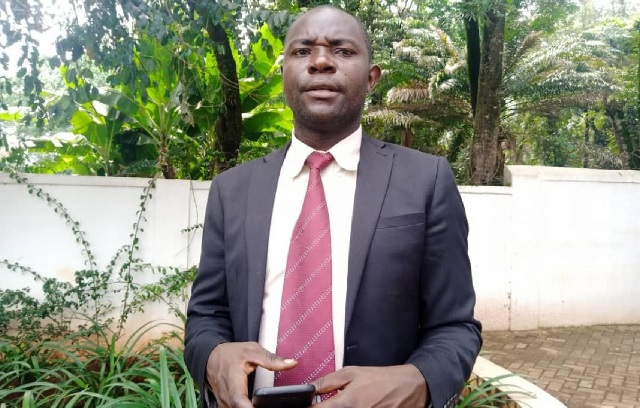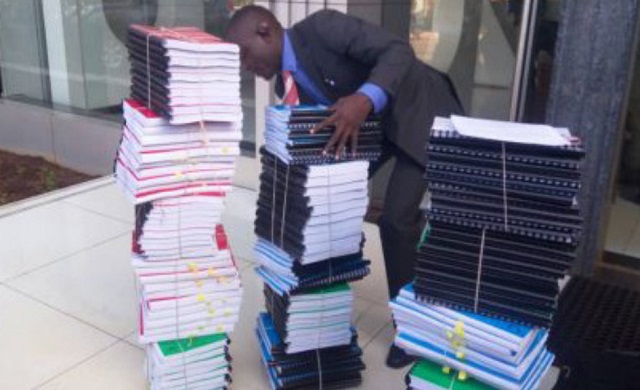
Kampala, Uganda | THE INDEPENDENT | Male Mabirizi Hassan Kiwanuka first shot to prominence in 2016 after he sued the Kabaka of Buganda Ronald Muwenda Mutebi II, following a directive by Buganda Land Board, the body that manages the Kingdom’s land to register all bibanja holders for them to get lease land titles.
It was unprecedented for anyone to attempt to sue the Kabaka. This move surprised many but to Mengo officials it was dejavu. Earlier in 2015, Mabirizi had also sued the Kabaka for refusing to implement a traditional court ruling [Kkooti ya Kisekwa] that had held that the head of the Kkobe clan was occupying the seat illegally.
Mabirizi’s father was one of the heads of the sub-clans in Kkobe. As a way of pre-empting the court decision, Mutebi allowed the enforcement of Kisekwa’s ruling that changed the clan heads of, Ngeye Nakinsige, KKobe.
Before these entanglements with Mengo, Mabirizi was a regular client of the judiciary. Through his Money Lending Company, MK Financiers Limited, Mabirizi had had several cases in court trying to recover his money from non-credit worthy customers.

In an interview with Uganda Radio Network, Mabirizi who has been a money lender since his university days in 2009 said he started going to court in 2013 to seek orders to attach the properties of clients who failed to meet their part of the bargain.
Most of these cases are lodged at magistrate’s courts but some of them are at the High Court Commercial Division. A look at the judgments that the court has given since 2015, there are more than 15 cases where Mabirizi is the applicant.
What is also interesting is that actually, Mabirizi lost most of these cases. He attributes this to the common thinking that money lenders are crooks who are always after defrauding people.
Other than the Kabaka cases, Mabirizi’s star also shone very brightly in 2018 when together with other people, he dragged parliament to court for amending the constitution to get rid of age limits to enable President Yoweri Museveni to run for another term after he clocked the mandatory 75 years of age.
The constitution then limited to between 35 and 75 the age at which anybody can contest as President of Uganda. In that same amendment, parliament had extended its tenure from five to seven years. Although the Constitutional Court in a majority ruling of four to one upheld the lifting of age limits, it struck out the amendment on increasing the tenure from five to seven years of not only parliament but other elective offices other than the presidency. This ruling was upheld by the Supreme Court in a split judgment of four justices against three.
Since then Mabirizi has filed several cases at the High Court, the Constitutional Court, the Supreme Court and even the East African Court of Justice challenging one government decision after another.
In the process of filing these cases both at the commercial division and the civil division, he has had run-ins with judges who he accuses of being biased. Some judges have also used their judgment to make a point or two to Mabirizi.
In one ruling that stands out that Mabirizi lost, Justice Elizabeth Jane Aliviza in her judgment said, “It is also important to note that five Judges of the Commercial Court Division at one point or another handled the appellant’s cases and three of them were requested to recuse themselves for the reason of perceived bias. It can be seen clearly that all those were delaying tactics… Part of the strategy employed was to flood this Court with several unmerited applications… No wonder that the appellant has raised the failure by the registrar to allow him to file a formal application for recusal as a ground of this appeal… when it’s clear to the court that a litigant has come to court not to seek justice but rather to pervert it like in this case, I think then the court would be enjoined to exercise the powers given to it by the law under section 98 of the CPA to prevent abuse of the process of the court and section 33 of the Judicature Act to avoid multiplicity of proceedings…”
In another judgment by the same judge, Mabirizi is criticized for filing too many unnecessary applications which according to her amounted to an abuse of the court process.
“This could have been avoided if the applicant was represented by an advocate and not its managing director who had attained a law degree believes he is competent enough to represent the applicant in court. He turned the court into an arena to prove his legal competence other than a place for seeking justice. It can be noted from the history of the case that any guidance by the court was interpreted to be biased thus accounting for the several applications for recusal.”
Justice Aliviza also noted that Mabirizi failed to separate himself from the case because he was both a litigant and counsel.
She ruled that a qualified advocate who has learnt the art of advocacy and professional conduct and who is alive to his duty to the court as an officer of the court would have taken the guidance of court in humility instead of interpreting it as bias against the party. “I would therefore strongly recommend that the applicant seeks the services of an advocate for the more orderly and professional conduct of its case,” Aliviza’s judgement read.
Mabirizi, a lawyer who refused to enroll for the Legal Practice Certificate at the law Development Centre said he’s not bothered by those who say he over litigates.
Asked how many cases has he so far filed in the different courts, Mabirizi said he stopped counting as doing so would demoralize him.
During his many appearances in court, Mabirizi has no problem getting into heated arguments with judges especially if he believes that he’s the one on the right side of the law. When asked whether this doesn’t negatively affect his cases and are determined against him, Mabirizi said a judicial officer who is biased will always be biased irrespective of the behavior of the litigant.
Like with cases involving his businesses, Mabirizi has lost the majority of the cases in the civil division of the high court in some cases attracting costs that go inro millions of shillings.
Asked whether he’s not scared of such costs, Mabirizi said he cannot afford to just look on when what he sees as illegalities are being committed simply because he fears to pay costs.
He adds that even in the circumstances where he has failed to pay costs, the repercussions are far inferior compared to the consequences of government decisions.
Mabirizi also says that even losing must be understood in its proper context. He says even if he loses, at least his cases will have had their day in court. He cites examples where the High Court even declined to register his cases.
Asked how he wants to be remembered, Mabirizi said he wants to be remembered as a Ugandan who did what was within his means to challenge those with power.
“I want to be remembered as a person who struggled for the rule of law during our country’s longest dictatorial regime.”
****
URN
The post Why Male Mabirizi is always in court appeared first on The Independent Uganda:.
from The Independent Uganda: https://ift.tt/3io1O47
0 Comments